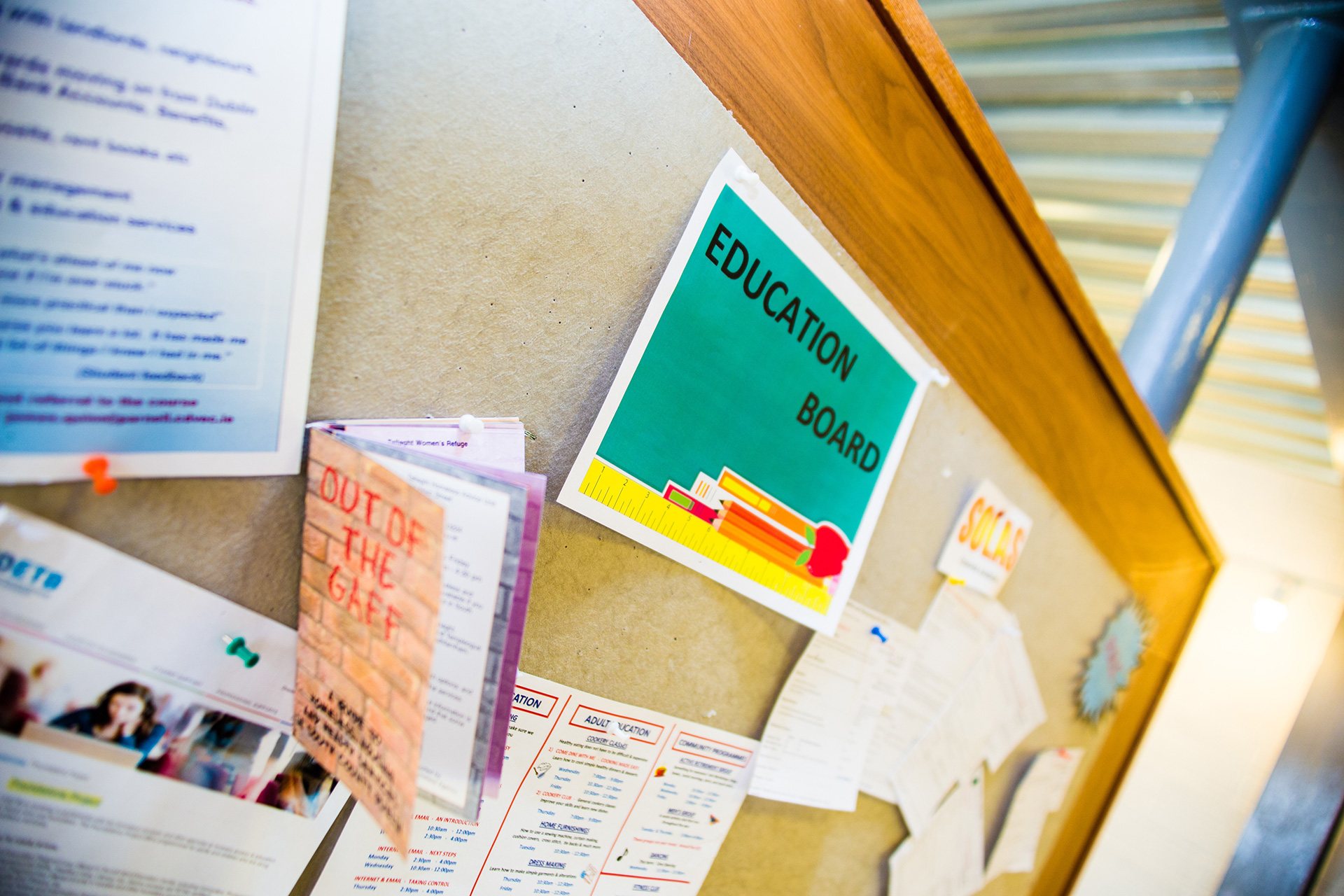A major new research report, by DCU’s Educational Disadvantage Centre and Peter McVerry Trust, on young homeless men’s experiences of the education system has found a widespread need for reforms and additional supports for vulnerable young people in the education system. The report, Educational Gaps and Future Solutions, sets out seven key recommendations to improve young people’s educational experiences and reduce the risks of homelessness in the future.
Speaking at the publication of the report on Wednesday 6 November, CEO of Peter McVerry Trust Pat Doyle said “This new and important research allows Peter McVerry Trust to move beyond anecdotal reports from service users about their interaction with the education system and establish a robust evidence basis for our future work and for the education strategies of the state.”
Mr Doyle said the education system presents an opportunity to encourage positive outcomes for young people and prevent homelessness for vulnerable young people. “Given the early age and length of time people will engage with the education system, it presents the best opportunity to positively impact on life outcomes for people. That is particularly true for those who may be more vulnerable or likely to experience homelessness due to their life circumstances.”
At the time that these research interviews were undertaken, there were 171 participants aged 18 – 38 years of age staying in Peter McVerry Trust’s services who had been educated in Ireland. As a result, this study’s sample of 51 participants constitutes 29.6% of all eligible participants.
Key findings:
- Significant deterioration in the interviewees’ experiences of education following their transition from primary to secondary school
- Rates of suspension and expulsion from school significantly higher than the national average, with 55% of participants having experienced reduced access to education via suspension, rolling suspension or expulsion
- 68% indicated that they had experienced ‘traumatic childhood events’
- Inadequate emotional counselling and therapeutic supports in and around schools
- The challenge and barriers to education when accessing emergency homeless accommodation yet 79% of participants interested in further education or training
Sarah Murphy, lead author and Research Associate with the Educational Disadvantage Centre, DCU Institute of Education, said: “This report reveals a range of preventable system failures in the Irish education system that are still ongoing today. These failures increase the risk of exclusion from the system and participation in society with knock-on impacts that heighten the risks of homelessness.
The high number of participants who were suspended or expelled from school supports a call for a national target of no student to be suspended or expelled from school but to instead be given adequate multidisciplinary team supports at both primary and post-primary levels.
Furthermore, the high levels of those who have experienced trauma and with little or limited emotional counselling or therapeutic supports in and around their school is a glaring gap in supports to prevent trauma impacting on wider parts of a young person’s life.”
Among the recommendations of the research is a call for the Department of Education to make a new funding stream available for mental health supports for young people, to include specialised counselling services to address emotional issues and trauma experienced by vulnerable and at-risk young students. The report recommends the establishment of a distinct funding strand to develop Community Lifelong Learning Centres, to meet the diverse holistic educational needs of vulnerable young people. The report also calls for the Department of Education and Skills, together with the Teaching Council, to provide and lead a strategic commitment to enhancing focus on conflict resolution skills for secondary school teachers through initial teacher education and professional development programmes.
Read the summary of the new report here.
For the full report, click here.


